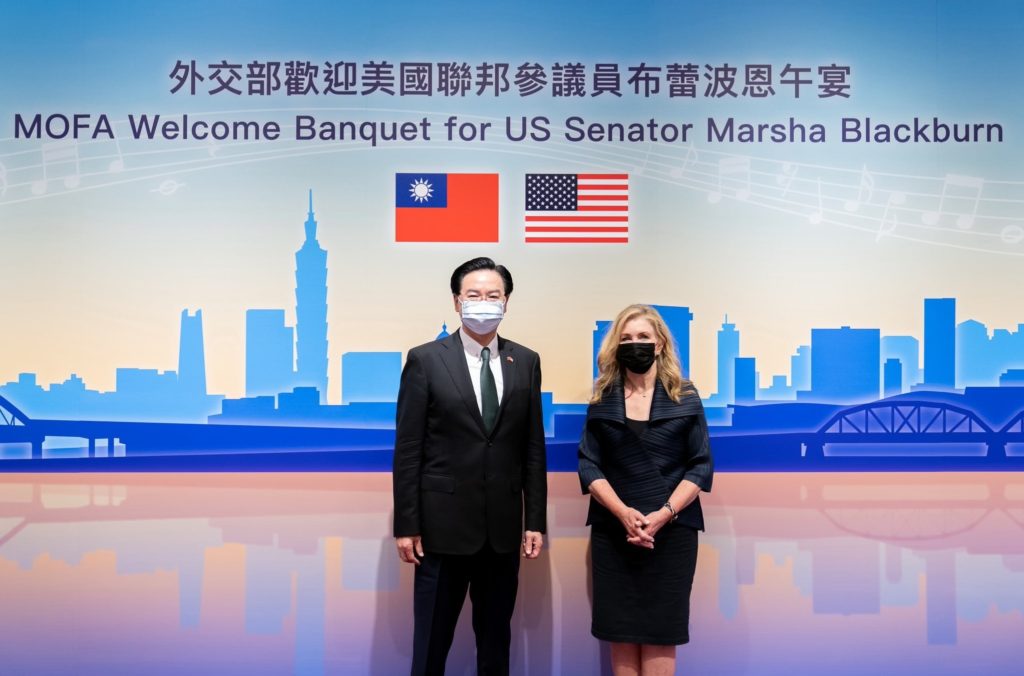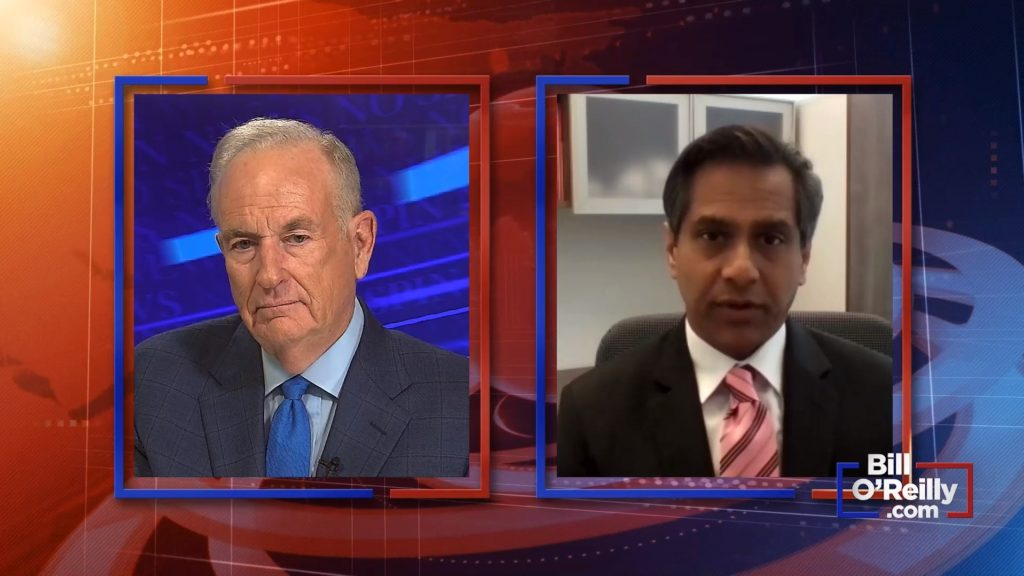
ICAS Bulletin (online ISSN 2836-3418, print ISSN 2836-340X) is published every other week throughout the year at 1919 M St NW, Suite 310, Washington, DC 20036.
The online version of ICAS Bulletin can be found at chinaus-icas.org/bulletins/.

– On August 29, a poll of companies within the U.S.-China Business Council found that Americans are losing confidence in their Chinese ventures due to the nation’s stringent Covid-19 strategy.
– The U.S. Department of Transportation suspended 26 flights by Chinese airlines in a dispute over Beijing’s strict COVID-19 policies. The move follows Beijing’s decision to limit flights by U.S. carriers.
– Zhuhai Orbita Aerospace Science & Technology was blacklisted over national security concerns by the U.S. Commerce Department. In response, the organization said the move will not have any “material impact.”
– The U.S. Commerce Department blacklisted seven Chinese aerospace companies for ties to China’s large-scale military modernization program. This crackdown on Chinese military-linked companies is aimed at preventing U.S. technology and products from boosting the Chinese military.
– Former Apple engineer Zhang Xiaolang pleaded guilty to criminal charges that he stole proprietary information regarding circuit board schematics developed by Apple’s electric vehicle division.
– The China Semiconductor Industry Association, a state-backed trade group, denounced the new U.S. Chips and Science Act for violating shared principles of fair practices and for harming the spirit of the World Semiconductor Council’s charter.
Associated News References:
“U.S. Business Confidence in China Falls to Record Low, Survey Says,” The Wall Street Journal, August 29 [Paywall]
“US Suspends 26 Flights by Chinese Airlines in Escalating Dispute Over Covid Policies,” Bloomberg, August 26 [Paywall]
“Tech war: Chinese satellite data company plays down impact of US sanctions,” South China Morning Post, August 25 [Paywall]
“Commerce sanctions Chinese aerospace companies for military ties,” The Washington Post, August 23 [Paywall]
“China-Bound Ex-Apple Engineer Admits to Trade Secrets Theft,” Bloomberg, August 22 [Paywall]
“China semiconductor group warns new US Chips law may lead to supply chain chaos,” South China Morning Post, August 17 [Paywall]

– On August 28, two U.S. warships conducted an official freedom of navigation operation through the international waters of the Taiwan Strait as China’s military was also operating in the area and “maintaining a high alert.”
– China has opposed the scheduled war games between the U.S. and India near the disputed border in October, arguing that it violates the current agreement between Beijing and New Delhi.
– On August 22, the U.S. launched regular joint military exercises with South Korea. The extensive exercise, called ‘Ulchi Freedom Shield,’ will last until September 1 and is also seen as a deterrence against North Korea.
– Vice Adm. Karl Thomas of the 7th Fleet told the press that the U.S. and its allies’ aircraft have been more frequently unsafely intercepted by Chinese aircraft in recent months. These interceptions were beyond the norm for conduct according to Thomas.
– U.S. Airforce Secretary Frank Kendall has expressed hope that China’s behavior would return to the previously established norms after China’s recent acts of anger after Pelosi’s visit increased the risk over Taiwan.
– Taiwan’s desire for better armament rises as China poses unprecedented military pressure recently in response to Pelosi’s visit to Taiwan. Taiwan officials have called for Washington to adjust its policies since the U.S. is the main weapon supplier to Taiwan.
– Chinese Ambassador to the U.S. Qin Gang warned Washington that “China will respond” if the U.S. does not exercise restraint and stop sailing naval vessels through the Taiwan Strait.
Associated News References:
“Taiwan: Two US warships sail through strait,” BBC, August 28
“China lashes out at Indo-US military drill in Oct, says it violates bilateral agreements,” Hindustan Times, August 25
“US Launches Massive Military Drills With South Korea In China’s Backyard; Aims To Deter A Belligerent North,” Eurasian Times, August 22
“U.S. 7th Fleet commander sees increase in ‘unsafe’ intercepts by China,” Navy Times, August 18
“U.S. Air Force secretary: China’s actions around Taiwan increase risk,” Reuters, August 19 [Paywall]
“China pressure deepens Taiwan’s desire for big US weapon systems,” Financial Times, August 18 [Paywall]
“China Warns the U.S. Against Sailing Warships Through the Taiwan Strait,” Time, August 17 [Paywall]

– As China continues to deploy warships and military aircraft into the Taiwan Strait, the Biden administration now reportedly plans to ask the U.S. Congress to approve an estimated $1.1 billion arms sale to Taiwan.
– Taiwan president Tsai Ing-wen, in response to the recent foriegn visits by foreign leaders, said the actions “reinforce” the “island’s determination to defend itself.”
– China, now adjusting its response, has been “clamping down on anti-American sentiment” and limiting inflammatory posts within their social media platforms
– Key diplomatic channels have continued to stale, but are showing signs of improvement with a face-to-face meeting between the Chinese Ambassador to the U.S. Qin Gang and U.S. Deputy Secretary of State Wendy Sherman.
– On August 25, Senator Blackburn became the third U.S. Congressional representative to visit Taiwan this month. Upon landing in Taipei, Blackburn tweeted: “It’s time we focus on rewarding Taiwan’s commitment to democratic values and ensure they have the necessary resources.”
– While speaking on Beijing’s response, U.S. Ambassador to China Nicholas Burns said the nation’s “become an agent of instability in the Taiwan Strait” and defended Speaker Pelosi’s visit at a summons with Chinese Vice Foreign Minister Xie Feng.
– On August 17, Taiwan’s envoy to the U.S. Hsiao Bi-khim said China’s actions generate much “attention and sympathy” towards Taiwan.
Associated News References:
“Biden administration to ask Congress to approve $1.1B arms sale to Taiwan,” Politico, August 29
“Taiwan president says U.S. visits reinforce island’s determination to defend itself,” Reuters, August 26 [Paywall]
“China reins in online backlash against U.S. over Pelosi’s Taiwan trip,” Nikkei Asia, August 26 [Paywall]
“US keen to ‘manage differences’ with China amid strains over Taiwan trip: State Department,” South China Morning Post, August 25 [Paywall]
“Third US Congress Visit to Taiwan This Month Fans China Tensions,” Bloomberg, August 25 [Paywall]
“China must show it’s not an ‘agent of instability’ on Taiwan, US Ambassador to China says,” CNN, August 19
“Taiwan envoy to U.S. says China bullying spurs foreign interest in visits to island,” The Straits Times, August 17

– On August 26, Washington and Beijing reached a deal which will allow U.S. regulators to travel to Hong Kong to inspect Chinese companies’ audit documents, allowing said companies to remain listed on U.S. exchanges.
– On August 26, China International Marine Containers (CIMC) announced that it would not be moving forward with a $987.3 million plan to purchase Danish shipping giant A.P. Moeller – Maersk A/S, citing regulatory challenges and concerns over further consolidation of the struggling global supply chain.
– On August 24, a four-year expiration date for punitive tariffs on certain Chinese products put in place by the Trump administration came and went without the Biden administration bringing any expiration into effect, essentially renewing these tariffs for four more years.
– A new survey conducted by the American Chamber of Commerce in Taiwan revealed that roughly half of U.S. companies operating in Taiwan expect that increasing Chinese military activity will affect their business operations through to next year.
– On August 17, U.S. and Taiwanese officials announced that they had “reached consensus on the negotiating mandate” for formal trade talks. The agenda for trade talks includes an intention to address issues like trade facilitation, good regulatory practices, and removing discriminatory barriers to trade.
– Chinese foreign direct investment in Mexico hit a record high of $606.3 million last. Many of these investments come from Chinese manufacturing companies, investing in Mexico’s north to enable tariff-free trade with the U.S.
Associated News References:
“U.S. and China Reach Agreement on Chinese Company Audits,” The Wall Street Journal, August 26 [Paywall]
“Shipping container suppliers ditch $987m deal after U.S. probe,” Nikkei Asia, August 26 [Paywall]
“US-China trade war: Trump-era tariffs on imports kept in place as Joe Biden’s ambivalence persists,” South China Morning Post, August 24 [Paywall]
“Half of US Firms in Taiwan Expect Chinese Military to Disrupt Operations Through 2023,” Bloomberg, August 18 [Paywall]
“U.S., Taiwan to start formal trade talks under new initiative,” CNBC, August 17
“Chinese factories flock to Mexico, crossing U.S. border to avoid tariffs,” Nikkei Asia, August 17 [Paywall]

– On August 30, U.S. Climate Envoy John Kerry urged China’s President Xi Jinping to resume climate talks. Kerry stated he was hopeful the countries could “get back together” and that “this is the one area that should not be subject to interruption.”
– Tuvalu’s foreign minister Simon Kofe said on Thursday that “both the United States and China need to be on board to ensure peace and bring action on climate change.” Since Pelosi’s visit to Taiwan in early August, most bilateral discussions have frozen.
– On August 17, China rebuffed a call to resume climate cooperation with the U.S. and instead questioned Washington’s ability to deliver on the promises of the Inflation Reduction Act. Diplomats from the two nations also sparred through Twitter in regards to climate change. while China asked for an end to sanctions against Chinese solar panels.
Associated News References:
“U.S. climate envoy Kerry urges China to resume emissions talks -FT,” Reuters, August 30 [Paywall]
“Tuvalu minister says both China, U.S. needed for climate change action,” Reuters, August 24 [Paywall]
“China responds coolly to US climate bill, rejecting a call to resume cooperation,” Climate Home News, August 17
“China and US spar over climate on Twitter,” AP News, August 17
“China Snipes at Biden’s Big Climate Win: ‘Can the US Deliver?’,” Bloomberg, August 17 [Paywall]

“Future US-China cooperation on tackling global drugs trade seen as unlikely,” South China Morning Post, August 29 [Paywall]
“U.S. Entertainment Industry Hits Wall in China,” The Wall Street Journal, August 24 [Paywall]
“MGM China Pumps $594 Million Into Macau Casino Unit Ahead of License Bid,” The Wall Street Journal, August 22
“Critical minerals – the next front line in the China-US rivalry?,” South China Morning Post, August 20 [Paywall]
“Xi Jinping and Vladimir Putin to attend G20 summit in Bali, says Indonesian president” Financial Times, August 19 [Paywall]
“China backs African Union bid to join the Group of 20,” South China Morning Post, August 19 [Paywall]
“Putin breaks silence on Pelosi’s Taiwan trip,” South China Morning Post, August 17 [Paywall]
“50% of Taiwanese believe U.S. could help if China attacks: poll,” Focus Taiwan, August 17
“China to Join Russia Military Exercises as U.S. Rivals Deepen Ties,” The Wall Street Journal, August 17 [Paywall]
August 24 hosted by East-West Center
August 23 hosted by Center for Strategic and International Studies
August 22 hosted by Center for Strategic and International Studies
August 22 hosted by Hudson Institute
August 17 hosted by The US-China Business Council
September 7 by The US-China Business Council
September 7 by the Center for a New American Security
September 9 hosted by Hudson Institute
September 12 hosted by Center for Strategic and International Studies
by Nong Hong
August 25, 2022
“On July 31 2022, half a year after the Ukraine conflict, Russian President Vladimir Putin signed a decree dictating a new Maritime Doctrine that outlines Russia’s key strategic priorities in marine and maritime development, stressing Arctic waters. Compared with two previous similar documents released in 2015 and 2001, this new Marine Doctrine reflects the positions of a more assertive Russia in conflict with neighbors, reiterating Moscow’s concern about the U.S. and NATO encroaching on Russia’s access to resources and transportation routes.
This new Marine Doctrine comes at a time when Russia has encountered tremendous difficulties in maintaining its role in Arctic affairs due to the Ukraine conflict. In March 2022, the seven Arctic Council member states—Canada, Denmark, Finland, Iceland, Norway, Sweden, and the United States—issued a joint statement on Arctic Council cooperation following Russia’s invasion of Ukraine. According to this statement, the representatives from these countries will not travel to Russia, the current chair of Arctic Council, for meetings. They will also temporarily pause participation in all meetings of the Council and its subsidiary bodies, which indicates grave impediments to international cooperation in the Arctic…”
by Sourabh Gupta
August 21, 2022
“Seventy-five years ago this July, the US diplomat George Kennan published his seminal essay in Foreign Affairs introducing the idea of ‘containment’. In The Sources of Soviet Conduct, Kennan advocated for a policy of containment against Soviet expansionism. As some in Washington prepare for a new Cold War with China, the Kennan-era template is being pressed into service again.
A key chapter on The Intellectual Sources of China’s Conduct published in a 2020 US State Department paper even borrows from Kennan’s famous title. Others seek a softer variant of the policy that would encircle or contain China’s influence by excluding it from bespoke security and non-security focused minilateral groupings. Diplomats, like generals, may be wedded to their last war strategy but the challenge posed by China today is vastly different from that which was posed by the Soviet Union…”
by Yilun Zhang
August 19, 2022
“Tensions over Taiwan have reached a boiling point in U.S.-China relations over the last four years. The issue of Taiwan’s sovereignty was an expected hot topic of discussion in recent bilateral diplomatic discussions and also at international forums such as the Shangri-La Dialogue, with Beijing sending consistent warnings of serious reactions should the U.S. “interfere” in Chinese domestic affairs. So when House Speaker Nancy Pelosi visited Taiwan earlier this month, it was no surprise that Beijing responded with a new round of military drills by the Chinese People’s Liberation Army (PLA) around the self-claimed island.
Perhaps a bit more unexpected was how, as part of its response to Speaker Pelosi’s visit, China suspended high-level military dialogues with the U.S. This rising tension over Taiwan during a time when the two great powers lack effective security communication channels raises significant concerns over an open conflict between China and the U.S. The potential snow-balling consequences of these suspensions should not be underestimated.
Incidentally, wargames simulating armed conflict between Beijing and Washington over the Taiwan Strait have also gained national attention in recent months. Despite their headline-catching findings, the two wargame projects—one held by Center for a New American Security (CNAS) and the other by Center for Strategic and International Studies (CSIS)—can dangerously mislead American policymakers and public to misunderstand the risk and current state across the Taiwan Strait. Both the CNAS and the CSIS wargame projects relied on assumptions about strategy and military doctrine that are unwarranted, impractical, or outdated. Meanwhile, the methods used to conduct these wargames were likely more entertaining than they were accurate and constructive…”
This commentary was originally published on U.S.-China Perception Monitor on August 19, 2022.


The Institute for China-America Studies is an independent nonprofit, nonpartisan research organization dedicated to strengthening the understanding of U.S.-China relations through expert analysis and practical policy solutions.
1919 M St. NW Suite 310,
Washington, DC 20036
icas@chinaus-icas.org
(202) 968-0595
© 2024 INSTITUTE FOR CHINA-AMERICA STUDIES. ALL RIGHTS RESERVED.